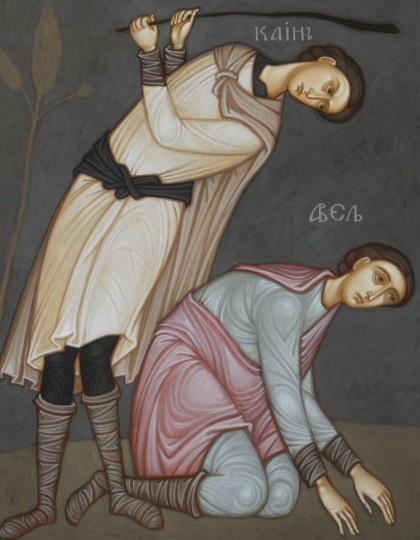How often have you found yourself complaining about your coworker, neighbor, friend, or family member and have completely avoided lifting that up to God in prayer? I know I have and do. It seems especially easy to do with people removed from you, especially the clergy. "Oh if only bishop so and so was stronger on same-sex marriage. He's terrible." Or "So and so is lazy, and doesn't deserve what he has." Christ however challenges us to change this way of thinking. Not only should we be turning to God and offering up our hurts, complaints and struggles, but we also need to let God work on our hearts, and remember that each and every person is his child, no matter how far removed from Christ they might seem.
"My command is this: Love each other as I have loved you." (John 15:12)
Saint Paul tells us, in his epistle to the Romans, that we are to let no debt remain with one another. That is, we are to be reconciled as soon as we can.
"Let no debt remain outstanding, except the continuing debt to love one another, for whoever loves others has fulfilled the law." (Rom 13:8).
Yet there are many who say, "I am not my brother's keeper!" This is nonsense. There is no surer way to hell than removing ourselves from the rest of humanity. In the story of Cain and Abel, Cain kills his brother Abel, and foolishly believing God will not see pretends nothing is amiss. God asks "Where is your brother Abel?" to which Cain responds "I don't know, am I my brother's keeper?" (Gen 4:8-10). Yes, we are each other's keepers. We are responsible for one another, and to write any other person off, is to fall prey to the Devil's designs. What he desires more than anything, is the seperation of mankind from our Heavenly Father.

Saint Dorotheos of Gaza, a Syrian monk from the 6th century, writes about how important it is pray for one another, especially when we are hurt.
"If one part of the body is wounded, you do not cut it off, but apply the proper medicines to heal it." (Dorotheos, On Judging Others)
In a story told by the monks of his monastery, Dorotheos explained how each of us needs one another to get closer to God. Like particles whose proximity to one another is increased the closer we are to God. But also, who closeness to God, cannot exist without closeness to one another.
In this story, Dorotheos maps out the relationship which the brothers have to each other and to God. He draws a circle in the dirt that represents the world with God at the center. The radii are human lives. The progress that each person makes toward God brings him closer to the other brothers. The closer they are to God, the closer they become to one another; and the closer they are to one another, the closer they become to God. The community, then, is crucial for the progress of each member's maturity.
Dorotheos also counsels us to not expect love from each and every person. If we come to expect this always, we open ourselves up to dejection, disappoint and without the virtues, will eat at us, turning us into images of what we once opposed. Instead the saint says, show love without ever expecting it back. In this way, you will image God's love for mankind personally to people who might never had the opportunity to.
“Do not ask for love from your neighbor, for if you ask and he does not respond, you will be troubled. Instead show your love for your neighbor and you will be at rest, and so will bring your neighbor to love.” (Dorotheos, Philokalia)
It is hard, and for most of us it will take a lifetime to change our way of thinking, but little by little let us move toward praying for each other and the others in our lives. After all, that person who bumped into you on the bus, or cut you off on the freeway, they may not have anyone praying for him. Your prayer, however short and imperfect it may be, is a great mercy to him or her.

